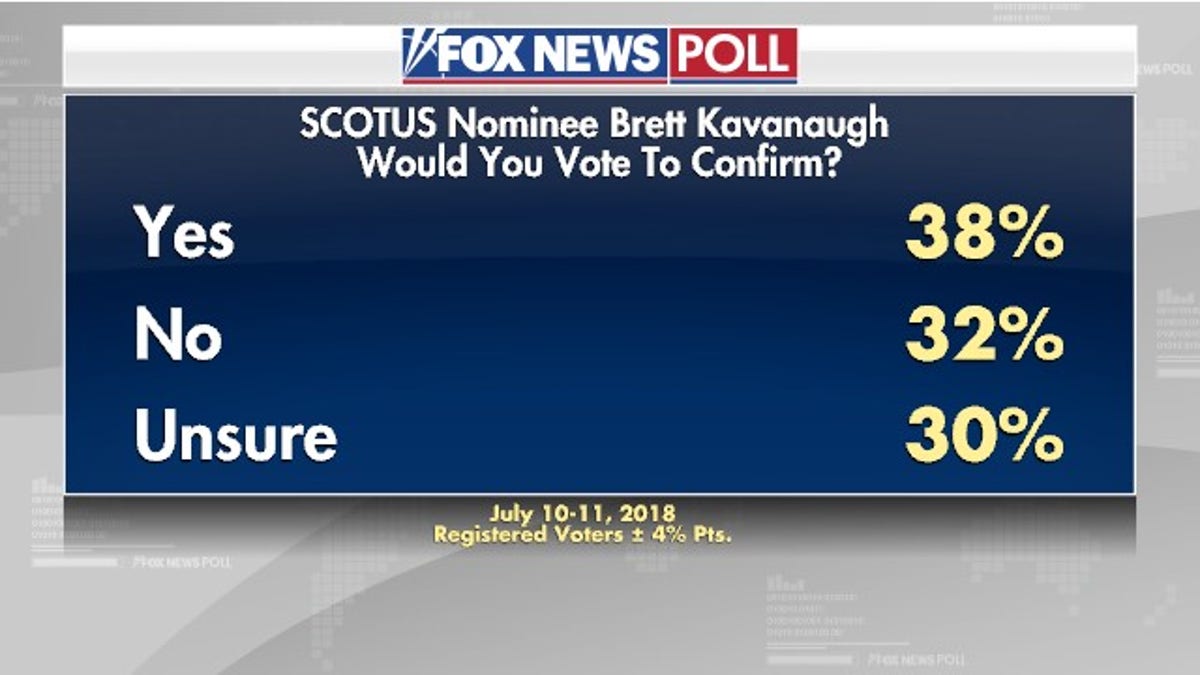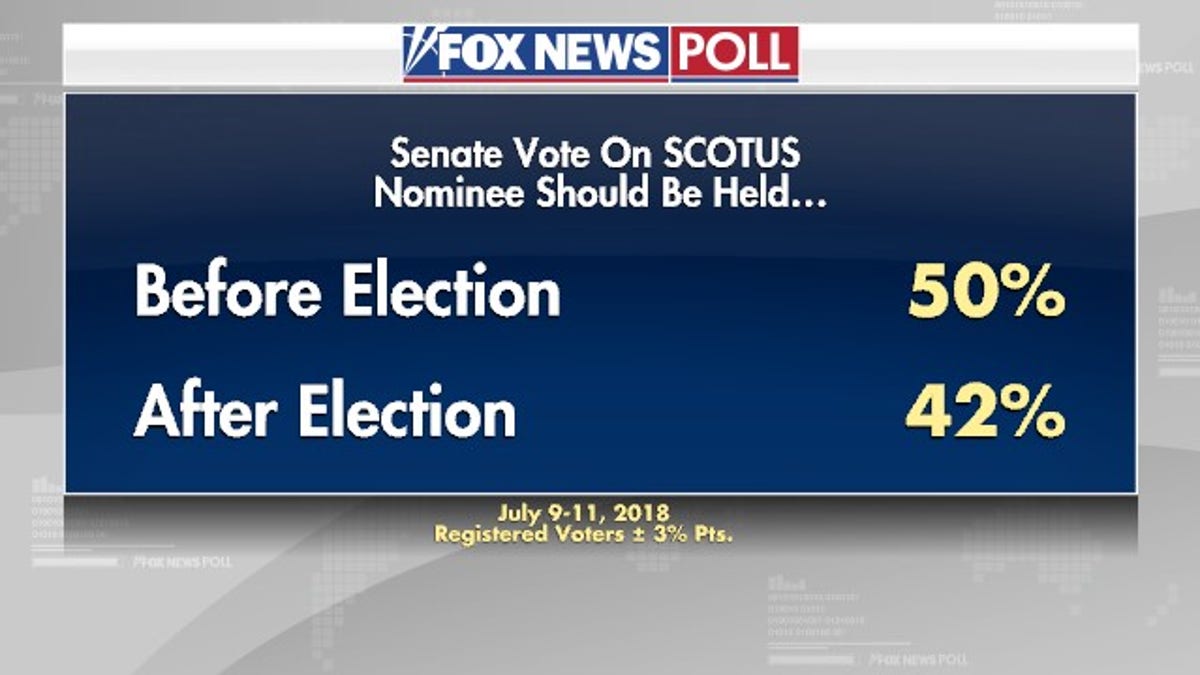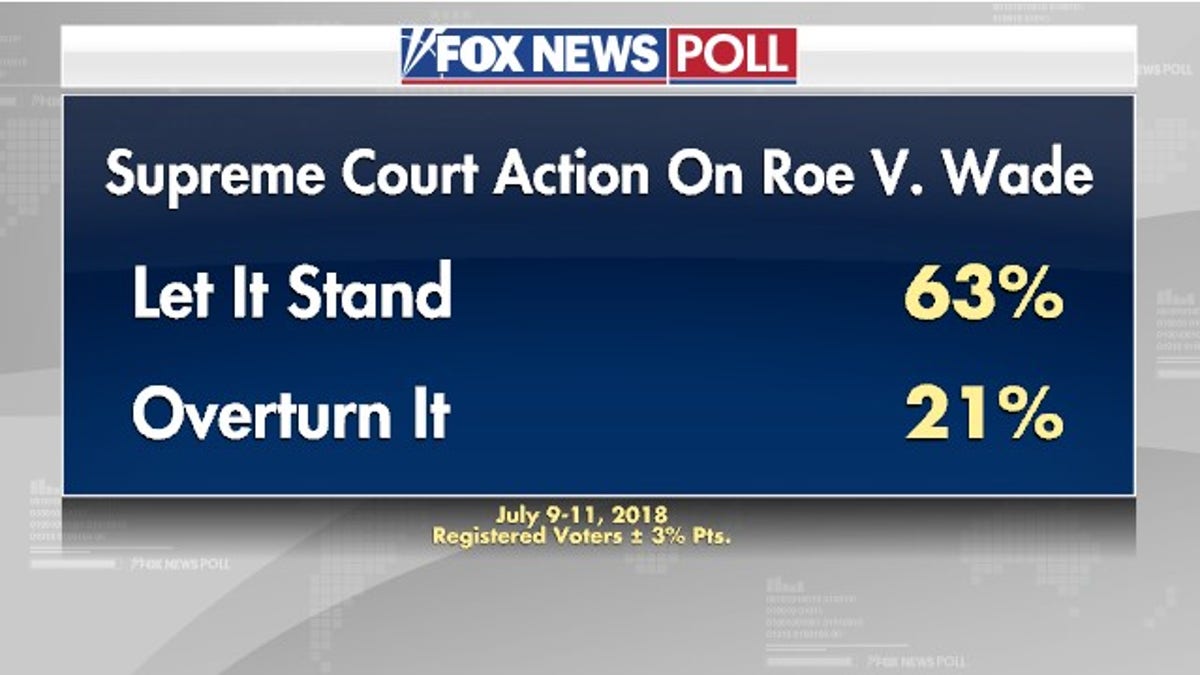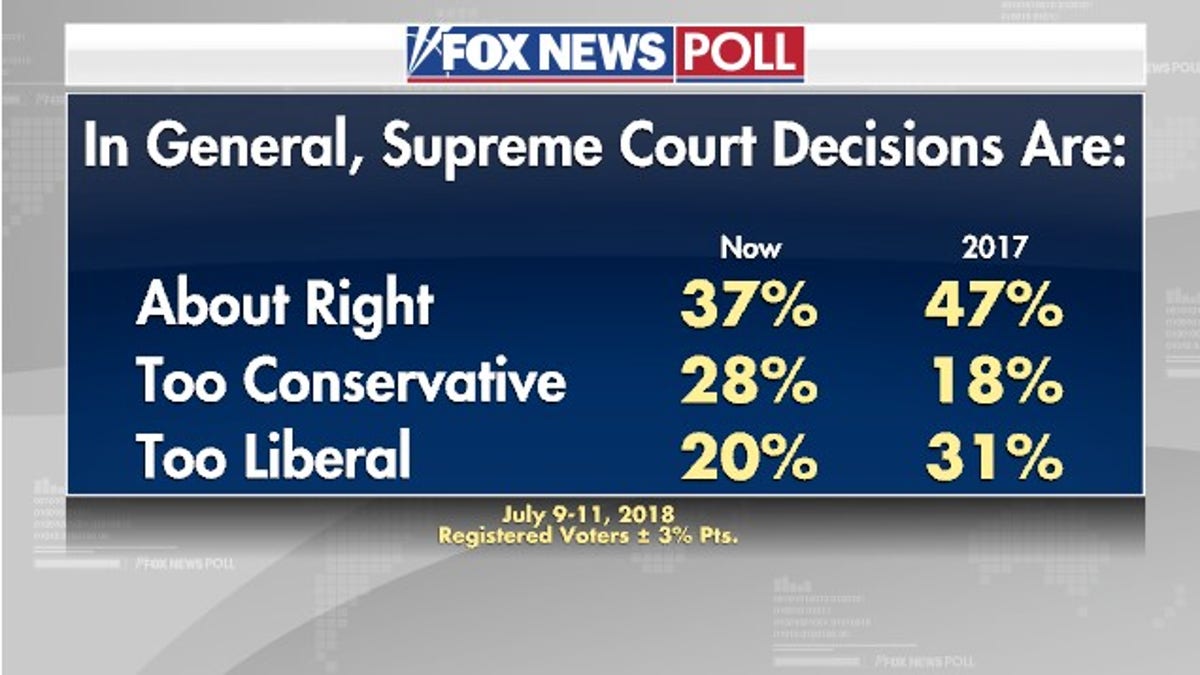Democrats gear up for fight over Kavanaugh nomination
NBA PAC Chair Scott Bolden and former Deputy Independent Counsel Sol Wisenberg debate.
Voters split on President Trump’s second Supreme Court nominee Brett Kavanaugh.
A new Fox News poll finds that 38 percent of voters would confirm him, 32 percent oppose him, and 30 percent are unsure.

READ THE COMPLETE POLL RESULTS.
That’s similar to the support President Obama’s second nominee, Elena Kagan, received the week after her selection in May 2010: 39 percent yes, 29 percent no, and 33 percent unsure.

In addition, by a 50-42 percent margin, voters say the Senate should vote on Kavanaugh’s nomination before the midterms.
The president revealed his choice to replace retiring Justice Anthony Kennedy in a prime-time announcement July 9. Voters were asked about Kavanaugh in interviews conducted July 10-11, which includes roughly two-thirds of the survey’s sample.
Opinions on the nominee and the process divide along party lines: 70 percent of Republicans would vote to confirm Kavanaugh, while 58 percent of Democrats would vote against him. And most Republicans (75 percent) want the Senate to act before the November elections, while Democrats say wait (64 percent).
In 2016, Senate Republicans refused to vote on Obama’s selection of Judge Merrick Garland to fill a vacant Supreme Court seat, arguing it was a presidential election year and the electorate should have a say in who picks the nominee. Senate Democrats, still smarting from being denied that seat, now argue Trump’s nominee must wait until voters have a say in the midterms.
Changes to the Supreme Court typically spark speculation over whether the new court will reverse the 1973 abortion decision Roe v. Wade.

The poll shows three times as many voters want to keep Roe v. Wade in place (63 percent) as want to overturn it (21 percent).
Even some of Trump’s key constituencies would let the ruling stand, including 59 percent of white men, 50 percent of Republicans, 49 percent of Trump voters, and 48 percent of conservatives.
Self-described pro-life voters are divided over what the court should do: 39 percent say overturn Roe, while 43 percent say let it stand.
Half of voters are familiar with Roe v. Wade (50 percent), and those voters are more likely to want to keep Roe in place (69 percent) than overturn it (27 percent).
Views on abortion have been sharply divided for years. Currently, more describe themselves as pro-choice than pro-life by a 3-point margin (45-42 percent).
And yet, even if abortion becomes a major part of the conversation surrounding Kavanaugh, 74 percent feel it is unacceptable for a U.S. Senator to base his or her vote solely on a nominee’s position on abortion.
"Although the numbers indicate defending Roe v. Wade is a potent line of attack, Democrats may want to exercise some caution here," says Republican pollster Daron Shaw, who conducts the Fox News Poll with Chris Anderson, his Democratic counterpart.
"There’s considerable sentiment against opposing a nominee solely on the abortion issue."
The poll also asked about the Supreme Court’s ideology, and while the largest number still think its decisions are “about right,” this marks the first time in Fox News polling going back to 2003 that more voters see the court as “too conservative” than “too liberal.”

Twenty-eight percent feel the high court is too conservative, up 10 points since February 2017. And 20 percent say it is too liberal, down 11 points. Thirty-seven percent say the court is about right in its decisions.
Justice Neil Gorsuch, Trump’s first Supreme Court nominee, joined the bench in April 2017.
Views have changed on both sides since early 2017: the number of Republicans feeling the court’s decisions are “too liberal” has dropped 23 points, while the “about right” number increased by 12.
For Democrats, the share viewing the court as “too conservative” went up 18 points, while the number saying “about right” went down 30.
The Fox News poll is based on landline and cellphone interviews with 1,007 randomly chosen registered voters nationwide and was conducted under the joint direction of Anderson Robbins Research (D) and Shaw & Company Research (R) from July 9-11, 2018. The poll has a margin of sampling error of plus or minus three percentage points for all registered voters.





